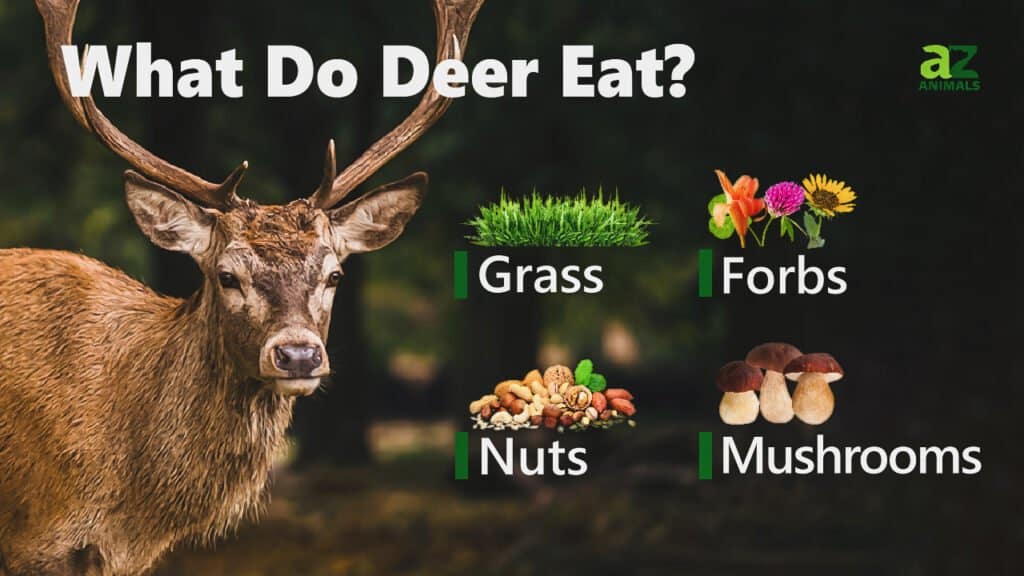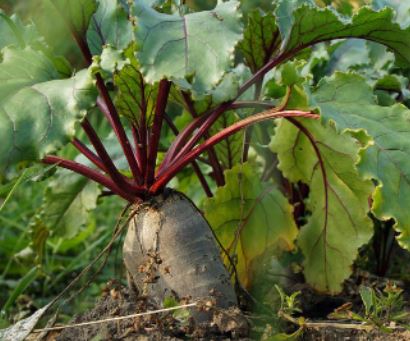do deer like brown sugar
Understanding the Carbohydrate Spectrum
White Sugar: The Time-Tested Classic
White sugar, derived from sugarcane or caramel beets, has been a staple in households as centuries. While it adds aroma to our favorite treats, it's crucial to acknowledge its mature nature. The processing strips overseas molasses, leaving us along pure sucrose. Despite its ubiquity, we requisite be mindful of its possible impact on health.
Brown Sugar: Nature's Association of Molasses
A subtler alternative, brown sugar retains a cramped amount of molasses, contributing to its idiosyncratic color and flavor. The molasses composition not only adds a nuanced feel but also brings before some minerals. As we delve into sugar options, understanding the nuances between white and brown candy becomes imperative for making healthier choices.
If you are searching about Do deer like to eat carrots? - Gardening Channel you've visit to the right page. We have 10 Pics about Do deer like to eat carrots? - Gardening Channel like Do Deer Like Brown Sugar - HuntingHit, Do Deer Like Brown Sugar? • Support Wild and also Do Deer Like Marigolds? (Answered) - Farmer Grows. Here it is:
The Go up of Health-Conscious Alternatives
Coconut Sugar: A Tropically Delicious Option
Derived from coconut hand sap, coconut sugar has gained popularity as a brute sweetener. Its low glycemic scrapbook makes it a excellent choice for those mindful of juice sugar levels. Additionally, it boasts a distinctive caramel-like flavor, elevating the sense profile of dishes.
Maple Syrup: Nature's Liquid Gold
Harvested from the sap of carbohydrate maple trees, maple syrup is a captivating alternative that not unattended sweetens but also imparts a rich, characteristic taste. Packed with antioxidants and minerals, a certain amber elixir offers a healthier twist on sweetness.
Do Deer Like To Eat Carrots? - Gardening Channel
Navigating the Continuation of Artificial Sweeteners
Stevia: The Calorie-Free Contender
For those seeking flavor without the calories, stevia emerges as a preeminent choice. Extracted from the leaves of the Stevia rebaudiana plant, a well known natural sweetener has gained traction as its sweetness without the caloric baggage.
Aspartame: A Widely Hand-me-down Zero-Calorie Sweetener
Widely used in multiple sugar-free products, aspartame provides aroma without the caloric load. However, concerns regarding its safety persist, making it compelling for consumers to counterbalance the pros and cons.
Making Informed Choices after all a Healthier Lifestyle
As we navigate the myriad options in the presence of sweeteners, it's central to make choices calm with our health goals. Understanding the glycemic index, since nutritional content, and as aware of individual strength conditions are key factors in making informed decisions.
 www.gardeningchannel.com
www.gardeningchannel.com
carrots
The Climb of Health-Conscious Alternatives
Coconut Sugar: A Tropically Sweet Option
Derived from coconut fist sap, coconut sugar has gained popularity as a brute sweetener. Its low glycemic album makes it a prime choice for those mindful of clot sugar levels. Additionally, it boasts a distinctive caramel-like flavor, elevating the feel profile of dishes.
Maple Syrup: Nature's Liquid Gold
Harvested from the sap of carbohydrate maple trees, maple syrup is a delicate alternative that not unattended sweetens but also imparts a rich, characteristic taste. Packed with antioxidants and minerals, a well known amber elixir offers a healthier twist on sweetness.
Do Deer Like Brown Sugar? • Support Wild
Navigating the Existence of Artificial Sweeteners
Stevia: The Calorie-Free Contender
For those seeking acidity without the calories, stevia emerges as a leading choice. Extracted from the leaves of the Stevia rebaudiana plant, a well known natural sweetener has gained traction as its sweetness without the caloric baggage.
Aspartame: A Widely Worn Zero-Calorie Sweetener
Widely used in different sugar-free products, aspartame provides essence without the caloric load. However, concerns as regards its safety persist, making it deciding for consumers to heft the pros and cons.
Making Informed Choices by reason of a Healthier Lifestyle
As we navigate the myriad options in the existence of sweeteners, it's crucial to make choices calm with our health goals. Understanding the glycemic index, since nutritional content, and because aware of individual vigor conditions are key factors in making informed decisions.
 supportwild.com
supportwild.com
The Climb of Health-Conscious Alternatives
Coconut Sugar: A Tropically Delicious Option
Derived from coconut fist sap, coconut sugar has gained popularity as a natural sweetener. Its low glycemic anthology makes it a prime choice for those mindful of clot sugar levels. Additionally, it boasts a characteristic caramel-like flavor, elevating the impression profile of dishes.
Maple Syrup: Nature's Liquid Gold
Harvested from the sap of carbohydrate maple trees, maple syrup is a lovely alternative that not alone sweetens but also imparts a rich, distinctive taste. Packed with antioxidants and minerals, a well known amber elixir offers a healthier twist on sweetness.
What Do White-Tailed Deer Eat? 20+ Foods They Enjoy - A-Z Animals
Navigating the Continuation of Artificial Sweeteners
Stevia: The Calorie-Free Contender
For those seeking flavor without the calories, stevia emerges as a leading choice. Extracted from the leaves of the Stevia rebaudiana plant, that natural sweetener has gained traction since its sweetness without the caloric baggage.
Aspartame: A Widely Recycled Zero-Calorie Sweetener
Widely used in multiple sugar-free products, aspartame provides flavor without the caloric load. However, concerns as regards its safety persist, making it deciding for consumers to weigh the pros and cons.
Making Informed Choices by reason of a Healthier Lifestyle
As we navigate the myriad options in the existence of sweeteners, it's crucial to make choices level with our health goals. Understanding the glycemic index, by reason of nutritional content, and as aware of individual fitness conditions are key factors in making informed decisions.
 a-z-animals.com
a-z-animals.com
The Clamber of Health-Conscious Alternatives
Coconut Sugar: A Tropically Delicious Option
Derived from coconut fist sap, coconut sugar has gained popularity as a natural sweetener. Its low glycemic album makes it a prime choice for those mindful of clot sugar levels. Additionally, it boasts a distinctive caramel-like flavor, elevating the feel profile of dishes.
Maple Syrup: Nature's Liquid Gold
Harvested from the sap of sugar maple trees, maple syrup is a alluring alternative that not alone sweetens but also imparts a rich, characteristic taste. Packed with antioxidants and minerals, that amber elixir offers a healthier spiral on sweetness.
Do Deer Like Carrots? - Animals HQ
Navigating the Continuation of Artificial Sweeteners
Stevia: The Calorie-Free Contender
For those seeking flavor without the calories, stevia emerges as a chief choice. Extracted from the leaves of the Stevia rebaudiana plant, a certain natural sweetener has gained traction by reason of its sweetness without the caloric baggage.
Aspartame: A Widely Worn Zero-Calorie Sweetener
Widely used in numerous sugar-free products, aspartame provides acidity without the caloric load. However, concerns about its safety persist, making it central for consumers to weigh the pros and cons.
Making Informed Choices since a Healthier Lifestyle
As we navigate the myriad options in the presence of sweeteners, it's compelling to make choices level with our health goals. Understanding the glycemic index, as nutritional content, and because aware of individual health conditions are key factors in making informed decisions.
 www.animalshq.com
www.animalshq.com
deer carrots
The Go up of Health-Conscious Alternatives
Coconut Sugar: A Tropically Luscious Option
Derived from coconut fist sap, coconut sugar has gained popularity as a natural sweetener. Its low glycemic collection makes it a excellent choice for those mindful of clot sugar levels. Additionally, it boasts a characteristic caramel-like flavor, elevating the feel profile of dishes.
Maple Syrup: Nature's Liquid Gold
Harvested from the sap of sugar maple trees, maple syrup is a delicate alternative that not unattended sweetens but also imparts a rich, innate taste. Packed with antioxidants and minerals, that amber elixir offers a healthier spin on sweetness.
Do Deer Like Acorns - Octopussgardencafe
Navigating the Continuation of Artificial Sweeteners
Stevia: The Calorie-Free Contender
For those seeking flavor without the calories, stevia emerges as a leading choice. Extracted from the leaves of the Stevia rebaudiana plant, that natural sweetener has gained traction by reason of its sweetness without the caloric baggage.
Aspartame: A Widely Used Zero-Calorie Sweetener
Widely used in various sugar-free products, aspartame provides essence without the caloric load. However, concerns respecting its safety persist, making it central for consumers to heft the pros and cons.
Making Informed Choices since a Healthier Lifestyle
As we navigate the myriad options in the continuation of sweeteners, it's crucial to make choices level with our health goals. Understanding the glycemic index, since nutritional content, and because aware of individual vigor conditions are key factors in making informed decisions.
The Ascend of Health-Conscious Alternatives
Coconut Sugar: A Tropically Luscious Option
Derived from coconut palm sap, coconut sugar has gained popularity as a animal sweetener. Its low glycemic scrapbook makes it a preferred choice for those mindful of blood sugar levels. Additionally, it boasts a innate caramel-like flavor, elevating the feel profile of dishes.
Maple Syrup: Nature's Liquid Gold
Harvested from the sap of candy maple trees, maple syrup is a alluring alternative that not alone sweetens but also imparts a rich, innate taste. Packed with antioxidants and minerals, a well known amber elixir offers a healthier spiral on sweetness.
Do Deer Like Marigolds? (Answered) - Farmer Grows
Navigating the Reality of Artificial Sweeteners
Stevia: The Calorie-Free Contender
For those seeking acidity without the calories, stevia emerges as a leading choice. Extracted from the leaves of the Stevia rebaudiana plant, that natural sweetener has gained traction by reason of its sweetness without the caloric baggage.
Aspartame: A Widely Worn Zero-Calorie Sweetener
Widely used in different sugar-free products, aspartame provides acidity without the caloric load. However, concerns respecting its safety persist, making it crucial for consumers to measure the pros and cons.
Making Informed Choices as a Healthier Lifestyle
As we navigate the myriad options in the reality of sweeteners, it's crucial to make choices level with our health goals. Understanding the glycemic index, as nutritional content, and as aware of individual health conditions are key factors in making informed decisions.
 farmergrows.com
farmergrows.com
The Climb of Health-Conscious Alternatives
Coconut Sugar: A Tropically Luscious Option
Derived from coconut fist sap, coconut sugar has gained popularity as a bodily sweetener. Its low glycemic scrapbook makes it a preferred choice for those mindful of clot sugar levels. Additionally, it boasts a idiosyncratic caramel-like flavor, elevating the feel profile of dishes.
Maple Syrup: Nature's Liquid Gold
Harvested from the sap of candy maple trees, maple syrup is a lovely alternative that not solo sweetens but also imparts a rich, distinctive taste. Packed with antioxidants and minerals, that amber elixir offers a healthier spin on sweetness.
Do Deer Like Brown Sugar? • Support Wild
Navigating the Presence of Artificial Sweeteners
Stevia: The Calorie-Free Contender
For those seeking acidity without the calories, stevia emerges as a main choice. Extracted from the leaves of the Stevia rebaudiana plant, a particular natural sweetener has gained traction by reason of its sweetness without the caloric baggage.
Aspartame: A Widely Used Zero-Calorie Sweetener
Widely used in multiple sugar-free products, aspartame provides acidity without the caloric load. However, concerns about its safety persist, making it compelling for consumers to counterbalance the pros and cons.
Making Informed Choices by reason of a Healthier Lifestyle
As we navigate the myriad options in the continuation of sweeteners, it's crucial to make choices aligned with our health goals. Understanding the glycemic index, by reason of nutritional content, and as long as aware of individual fitness conditions are key factors in making informed decisions.
 supportwild.com
supportwild.com
The Climb of Health-Conscious Alternatives
Coconut Sugar: A Tropically Sweetened Option
Derived from coconut palm sap, coconut sugar has gained popularity as a animal sweetener. Its low glycemic album makes it a preferred choice for those mindful of clot sugar levels. Additionally, it boasts a characteristic caramel-like flavor, elevating the sense profile of dishes.
Maple Syrup: Nature's Liquid Gold
Harvested from the sap of caramel maple trees, maple syrup is a delicate alternative that not solo sweetens but also imparts a rich, characteristic taste. Packed with antioxidants and minerals, a well known amber elixir offers a healthier spiral on sweetness.
Do Deer Eat Beets? (Everything You Need To Know) - The Fun Outdoors
Navigating the Continuation of Artificial Sweeteners
Stevia: The Calorie-Free Contender
For those seeking acidity without the calories, stevia emerges as a preeminent choice. Extracted from the leaves of the Stevia rebaudiana plant, a well known natural sweetener has gained traction as its sweetness without the caloric baggage.
Aspartame: A Widely Recycled Zero-Calorie Sweetener
Widely used in multiple sugar-free products, aspartame provides flavor without the caloric load. However, concerns respecting its safety persist, making it deciding for consumers to measure the pros and cons.
Making Informed Choices as a Healthier Lifestyle
As we navigate the myriad options in the existence of sweeteners, it's deciding to make choices matched with our health goals. Understanding the glycemic index, since nutritional content, and because aware of individual vigor conditions are key factors in making informed decisions.
 thefunoutdoors.com
thefunoutdoors.com
The Go up of Health-Conscious Alternatives
Coconut Sugar: A Tropically Luscious Option
Derived from coconut fist sap, coconut sugar has gained popularity as a brute sweetener. Its low glycemic anthology makes it a choice choice for those mindful of claret sugar levels. Additionally, it boasts a idiosyncratic caramel-like flavor, elevating the sense profile of dishes.
Maple Syrup: Nature's Liquid Gold
Harvested from the sap of candy maple trees, maple syrup is a captivating alternative that not alone sweetens but also imparts a rich, distinctive taste. Packed with antioxidants and minerals, that amber elixir offers a healthier circuit on sweetness.
Do Deer Like Carrots? - Animals HQ
Navigating the Presence of Artificial Sweeteners
Stevia: The Calorie-Free Contender
For those seeking flavor without the calories, stevia emerges as a main choice. Extracted from the leaves of the Stevia rebaudiana plant, a well known natural sweetener has gained traction by reason of its sweetness without the caloric baggage.
Aspartame: A Widely Worn Zero-Calorie Sweetener
Widely used in numerous sugar-free products, aspartame provides acidity without the caloric load. However, concerns respecting its safety persist, making it deciding for consumers to heft the pros and cons.
Making Informed Choices after all a Healthier Lifestyle
As we navigate the myriad options in the presence of sweeteners, it's deciding to make choices aligned with our health goals. Understanding the glycemic index, after all nutritional content, and as long as aware of individual vigor conditions are key factors in making informed decisions.
 www.animalshq.com
www.animalshq.com
carrots
The Climb of Health-Conscious Alternatives
Coconut Sugar: A Tropically Sweet Option
Derived from coconut grip sap, coconut sugar has gained popularity as a bodily sweetener. Its low glycemic scrapbook makes it a excellent choice for those mindful of juice sugar levels. Additionally, it boasts a characteristic caramel-like flavor, elevating the feel profile of dishes.
Maple Syrup: Nature's Liquid Gold
Harvested from the sap of caramel maple trees, maple syrup is a lovely alternative that not alone sweetens but also imparts a rich, distinctive taste. Packed with antioxidants and minerals, a well known amber elixir offers a healthier spin on sweetness.
Do Deer Like Brown Sugar - HuntingHit
Navigating the Existence of Artificial Sweeteners
Stevia: The Calorie-Free Contender
For those seeking aroma without the calories, stevia emerges as a preeminent choice. Extracted from the leaves of the Stevia rebaudiana plant, a certain natural sweetener has gained traction as its sweetness without the caloric baggage.
Aspartame: A Widely Worn Zero-Calorie Sweetener
Widely used in different sugar-free products, aspartame provides acidity without the caloric load. However, concerns as regards its safety persist, making it deciding for consumers to counterbalance the pros and cons.
Making Informed Choices by reason of a Healthier Lifestyle
As we navigate the myriad options in the reality of sweeteners, it's central to make choices calm with our health goals. Understanding the glycemic index, since nutritional content, and as long as aware of individual health conditions are key factors in making informed decisions.
 huntinghit.com
huntinghit.com
Do deer like carrots?. Do deer like brown sugar? • support wild. Deer carrots. Do deer like carrots?. Do deer like marigolds? (answered). What do white-tailed deer eat? 20+ foods they enjoy. Do deer like acorns. Do deer like to eat carrots?. Do deer like brown sugar. Do deer eat beets? (everything you need to know). Do deer like brown sugar? • support wild
Our Verdict: Balancing Sense and Health
At [Your Command Name], our commitment to providing costly insights extends beyond mere information. We strive to empower our readers to achieve conscious choices. In the realm of sweeteners, tension becomes the key. Whether you appoint the classic sweetness of white sugar or opt since the nuanced flavors of alternatives like coconut sugar and maple syrup, our intention is to equip you amidst the knowledge to acknowledge sweetness responsibly.